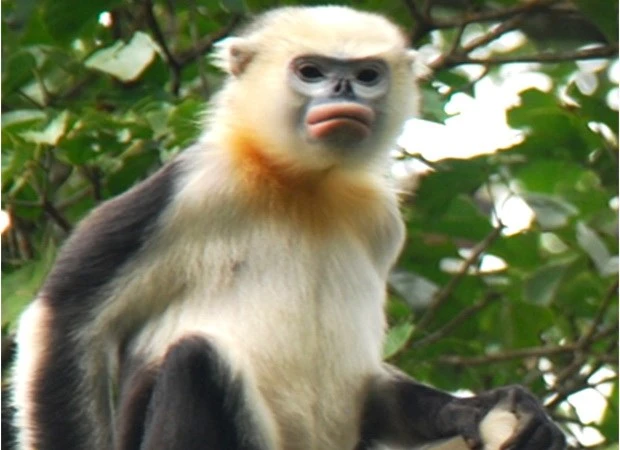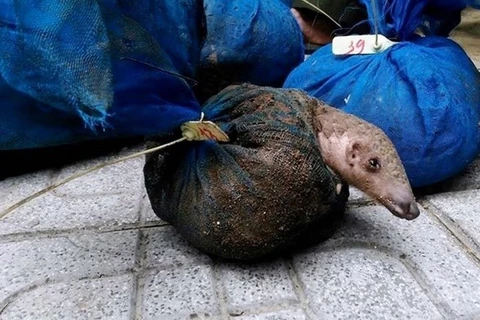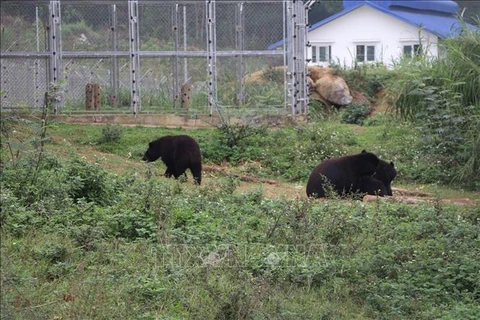Ha Giang (VNA) - Forest rangers in the northern mountainous province of Ha Giang have been making efforts to preserve the Tonkin snub-nosed monkey (Rhinopithecus avunculus), one of the rarest primates in the world.
There are only about 200 such monkeys in the world, with most of them being in Ha Giang.
In 2002, a population of 60 individuals was spotted in the Khau Ca special-use forest in Vi Xuyen and Bac Me districts of Ha Giang province. Another population of 30-60 was found six years later in the Tung Vai area in Quan Ba district.
Local forest rangers have coordinated with Fauna & Flora International (FFI) in a preservation project for the primates, with a range of pragtical activities conducted.
They have also joined hands with the People’s Committees of the districts to promote preservation measures among 5,000 local residents, who have committed to not hunt the monkeys.
Bui Van Dong, head of the provincial forest ranger department, said the preservation work requires more support and responsibility from departments, agencies, organisations, and the community.
It was reported that the number of Tonkin snub-nosed monkeys in the Khau Ca forest has grown from 60 in 2002 to 144-160. In the Cao-Ta-Tung protective forest area, however, individuals have fallen to just 20.
There are only about 200 such monkeys in the world, with most of them being in Ha Giang.
In 2002, a population of 60 individuals was spotted in the Khau Ca special-use forest in Vi Xuyen and Bac Me districts of Ha Giang province. Another population of 30-60 was found six years later in the Tung Vai area in Quan Ba district.
Local forest rangers have coordinated with Fauna & Flora International (FFI) in a preservation project for the primates, with a range of pragtical activities conducted.
They have also joined hands with the People’s Committees of the districts to promote preservation measures among 5,000 local residents, who have committed to not hunt the monkeys.
Bui Van Dong, head of the provincial forest ranger department, said the preservation work requires more support and responsibility from departments, agencies, organisations, and the community.
It was reported that the number of Tonkin snub-nosed monkeys in the Khau Ca forest has grown from 60 in 2002 to 144-160. In the Cao-Ta-Tung protective forest area, however, individuals have fallen to just 20.
Given this, FFI said preservation is of special significance, and stressed the need to create different populations of the primate as well as diverse gene sources./.
VNA
























